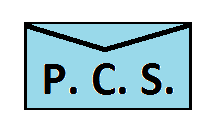The Institutionalization of Desktop Software
Most people who use Windows are familiar with Windows XP, in fact many people who have used it are still using it. For those who don’t recall the details, Windows XP was released in October 2001 and was supported by Microsoft until May 1 2014, when the last security patch for IE8 was released.
Windows XP lasted for a total of 13 years. This was a tremendous cause for concern within Microsoft because it slowed PC sales, and thus sales of preloaded copies of Windows XP. Up until the early 2000’s, the computer industry and Microsoft enjoyed a constant cycle of upgrades, where regular releases of new Windows operating systems would spur new PC purchases, which in turn would allow Microsoft to stuff more features into the operating system and release a new version.
The computer industry was similarly concerned, as they had been riding Microsoft’s upgrade coattails and enjoying the revenue from a constant stream of upgrades. This was not really a secret – the 2005 animated film “Robots” developed an entire story around the antagonist Phineas T. Ratchet’s attempts to halt the sale of robot repair parts in favor of new upgrades – making the comment in a board meeting “What’s our big ticket item – Upgrades, people, upgrades”
As a result, most pundits in the computer industry outdid themselves in creating explanations as to why Windows XP lasted so long – with the most favorite being that Windows Vista was “so terrible” that people stayed with Windows XP. Very few wanted to face the truth of what was really going on – Technical Inertia.
Most industries are familiar with Consumer Inertia. Consumer Inertia is basically customers saying “I spent time and money learning how to do something this way, unless you can give me a very compelling cost/benefit scenario, I’m not going to stop and buy new things to replace my existing way of doing things” Consumer Inertia is easily solvable – just make a better mousetrap and ignore the customers who don’t buy it – no matter how much they fight buying it, competition will force them to change eventually.
But Technical Inertia is something completely different. Technical Inertia is the principle that complex technical systems are so interdependent on other technical systems that even when customers want to change them, they simply cannot cost justify the change.
When we purchased Internet Partners, for example, we inherited their billing system. It was a great system – back in 2000 when it was first written. And it still works very well. However, the company that wrote it is no longer supporting it, and it lacks some features. But, the simple fact of it is that the customer base in Internet Partner’s billing system is so large and the billing system is so integrated that it would be cost prohibitive to re-key all of the data into a new system. So we support it ourselves – and we have not paid a cent to the original software vendor of that system in many years. That’s an example of Technical Inertia that has damaged the ability of software vendors to make money (from us).
The computer industry is maturing, it is growing up. It has been over 30 years since the industry has been dominated by hobbyists who were always buying the latest gadget with blinking lights. Today, the industry is just like every other industry.
How old is your car you drive? One of mine is 10 years old. The other is 17 years old. They still work fine.
How old is your dryer? Your toaster? Your oven, your refrigerator, your washing machine, your furnace, the wiring in your house, your telephone, etc. etc. etc.
Apple Computer says the future is making computers into toasters. That’s what they are doing with the iphone, the ipad, and all their i-stuff. Microsoft wants to be like them too, Windows 8 had an interface designed for toasters to run – which was so rejected by the market that Microsoft announced the next version would be Windows 10. (They wanted to get far, far away from Windows 8 – and yes, the Metro tiled interface is gone)
But a toaster lasts, and lasts, and lasts. For many, many years. It is a difficult thing but the Installed Software Vendors along with Microsoft and Intel must eventually figure out some other way to make money than by selling new software every 2 years. The trick of adding features to bloat it up and make it run slower with each new release is a dead end, now. Today, the money is in servicing existing systems and adding to them incrementally, not wholesale forklift upgrades.
Portlandia Cloud Services has been well aware this was the direction the industry was going towards, and it is why our mail systems are compatible with email software packages that date back as far as the 1990’s.
- Posted by
 pcsweb
pcsweb - Posted in Uncategorized
 Oct, 13, 2014
Oct, 13, 2014 Comments Off on The Institutionalization of Desktop Software
Comments Off on The Institutionalization of Desktop Software
IPv6 detector
Still using IPv4? 216.73.216.186 Show stats- Hide stats
This server has received 1240022 hits from both ipv4 and ipv6. IPv4 98.4% IPv6 1.6%

 Portlandia Cloud Services
Portlandia Cloud Services Join Us On Facebook
Join Us On Facebook Join Us On Twitter
Join Us On Twitter Join Us On In.com
Join Us On In.com Subscribe to Our Blog
Subscribe to Our Blog